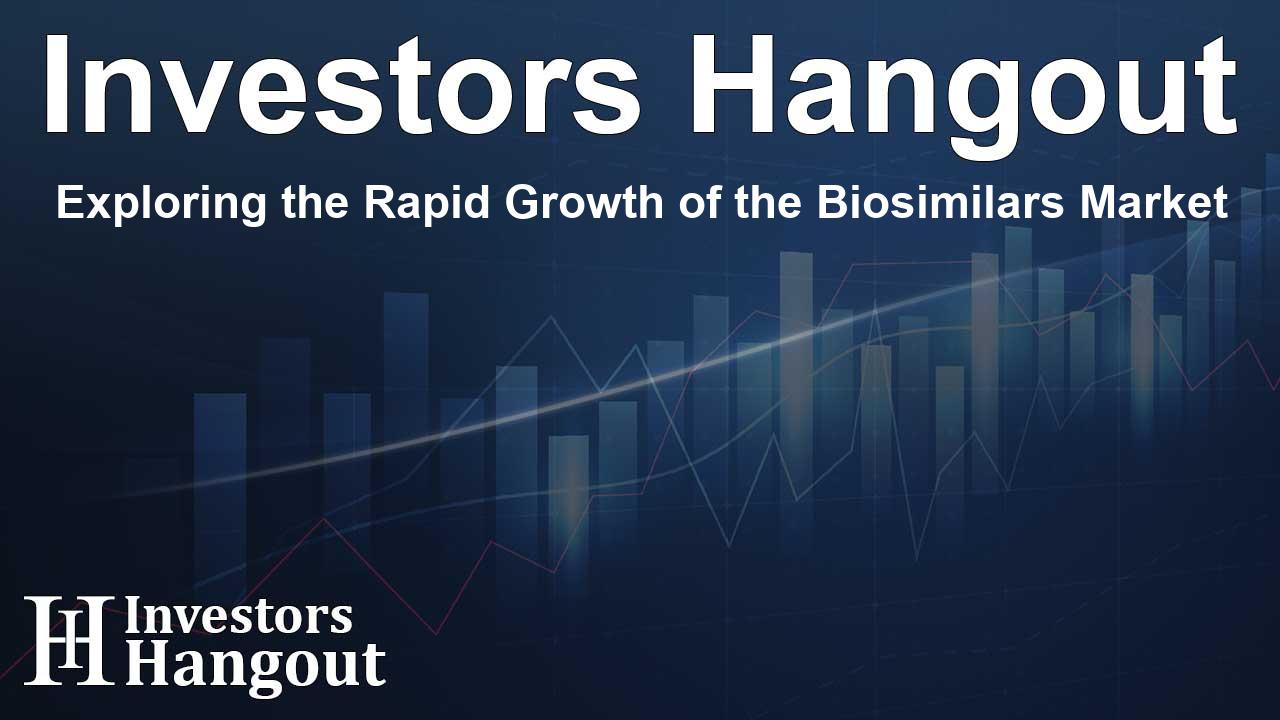Exploring the Rapid Growth of the Biosimilars Market

Biosimilars Market Growth Projections
The global biosimilars market is poised for substantial growth in the coming years. With an estimated increase of USD 54.35 billion between 2024 and 2028, the market is expected to expand at an impressive compound annual growth rate (CAGR) of nearly 23.63%. This rapid expansion is largely driven by the cost advantages that biosimilars offer over traditional biologics. As consumers and healthcare providers alike become more open to switching to these alternatives, the demand continues to rise, making biosimilars an increasingly important segment of the pharmaceutical market.
Key Market Factors Driving Growth
Shifts in Patient and Physician Preferences
The willingness of patients and physicians to adopt biosimilars plays a crucial role in this market's trajectory. Despite some hesitancy, particularly among specialists in fields like rheumatology who prefer prescribed bio-originators, there is a growing recognition of the potential benefits that biosimilars provide. The perception that biosimilars are less effective than their reference products is gradually changing as clinical data highlights their safety and efficacy.
Regulatory Influences in the Biosimilars Market
The European Union has been instrumental in the bio-similar market, establishing regulatory frameworks to assess the safety, efficacy, and interchangeability of these treatments. Regulatory bodies, such as the European Medicines Agency (EMA) and the European Commission, have streamlined procedures to facilitate approvals and ensure high standards of pharmaceutical quality. As more biosimilars gain regulatory approval, healthcare providers can confidently present these options to patients.
Current Challenges in the Market
While biosimilars present significant opportunities, there are hurdles that stakeholders must navigate. Producing biosimilars involves intricate manufacturing processes that require consistency across batches. Variations are not uncommon, and ensuring that each batch meets stringent quality standards can be difficult. Furthermore, legal complexities surrounding the approval process for biologics add layers of difficulty for new entrants attempting to compete.
The Impact of Artificial Intelligence on Biosimilars
Artificial Intelligence (AI) is transforming how businesses operate within the biosimilars market. AI technologies are being leveraged to enhance research and development, streamline regulatory processes, and optimize manufacturing efficiency. By applying AI, companies can analyze vast amounts of data to identify trends, predict outcomes, and improve product formulations. The integration of advanced analytics is not only about improving productivity but also about accelerating the pace of innovation within the biosimilars sector.
Market Segmentation Overview
This vibrant market can be segmented into several categories to help understand its composition:
- Product Types
- Monoclonal antibodies
- Insulin
- Human growth hormone
- Other biosimilars
- Applications
- Oncology and hematology
- Endocrinology
- Immunology
- Nephrology
- Geographical Reach
- Europe
- North America
- Asia
- Rest of World (ROW)
Products in Demand
Among the various product types, monoclonal antibodies are particularly noteworthy. These large, complex proteins have significant applications in treating cancers and autoimmune disorders. As patents for original biologics expire, the market for biosimilars is witnessing an uptick in new approvals, positioning these alternatives as vital tools in expanding treatment accessibility.
Understanding Market Dynamics
The biosimilars market is centered around developing and manufacturing follow-on biological medicines that mimic their reference products without being exact copies. Chronic conditions such as diabetes, certain cancers, and other serious health issues drive the demand for these biological alternatives. The ongoing efforts towards establishing a clear regulatory framework are essential for ensuring that these biosimilars meet the necessary therapeutic standards while providing cost effectiveness.
Frequently Asked Questions
What are biosimilars?
Biosimilars are follow-on biological medicines designed to be similar to already approved reference products in terms of quality, safety, and efficacy.
Why is the biosimilars market growing?
Increasing patient access to affordable treatment options, growing acceptance among healthcare professionals, and regulatory support are key drivers of the biosimilars market growth.
What challenges do biosimilars face?
Biosimilars deal with hurdles such as complex manufacturing processes, market entry barriers, and misconceptions about their effectiveness compared to original biologics.
How is AI influencing the biosimilars market?
AI is enhancing drug development and manufacturing processes, enabling more efficient operations and fostering innovation in the biosimilars sector.
What role does regulatory support play in biosimilars?
Regulatory bodies ensure that biosimilars meet the required safety and efficacy standards, thus building confidence among patients and healthcare providers.
About Investors Hangout
Investors Hangout is a leading online stock forum for financial discussion and learning, offering a wide range of free tools and resources. It draws in traders of all levels, who exchange market knowledge, investigate trading tactics, and keep an eye on industry developments in real time. Featuring financial articles, stock message boards, quotes, charts, company profiles, and live news updates. Through cooperative learning and a wealth of informational resources, it helps users from novices creating their first portfolios to experts honing their techniques. Join Investors Hangout today: https://investorshangout.com/
Disclaimer: The content of this article is solely for general informational purposes only; it does not represent legal, financial, or investment advice. Investors Hangout does not offer financial advice; the author is not a licensed financial advisor. Consult a qualified advisor before making any financial or investment decisions based on this article. The author's interpretation of publicly available data shapes the opinions presented here; as a result, they should not be taken as advice to purchase, sell, or hold any securities mentioned or any other investments. The author does not guarantee the accuracy, completeness, or timeliness of any material, providing it "as is." Information and market conditions may change; past performance is not indicative of future outcomes. If any of the material offered here is inaccurate, please contact us for corrections.